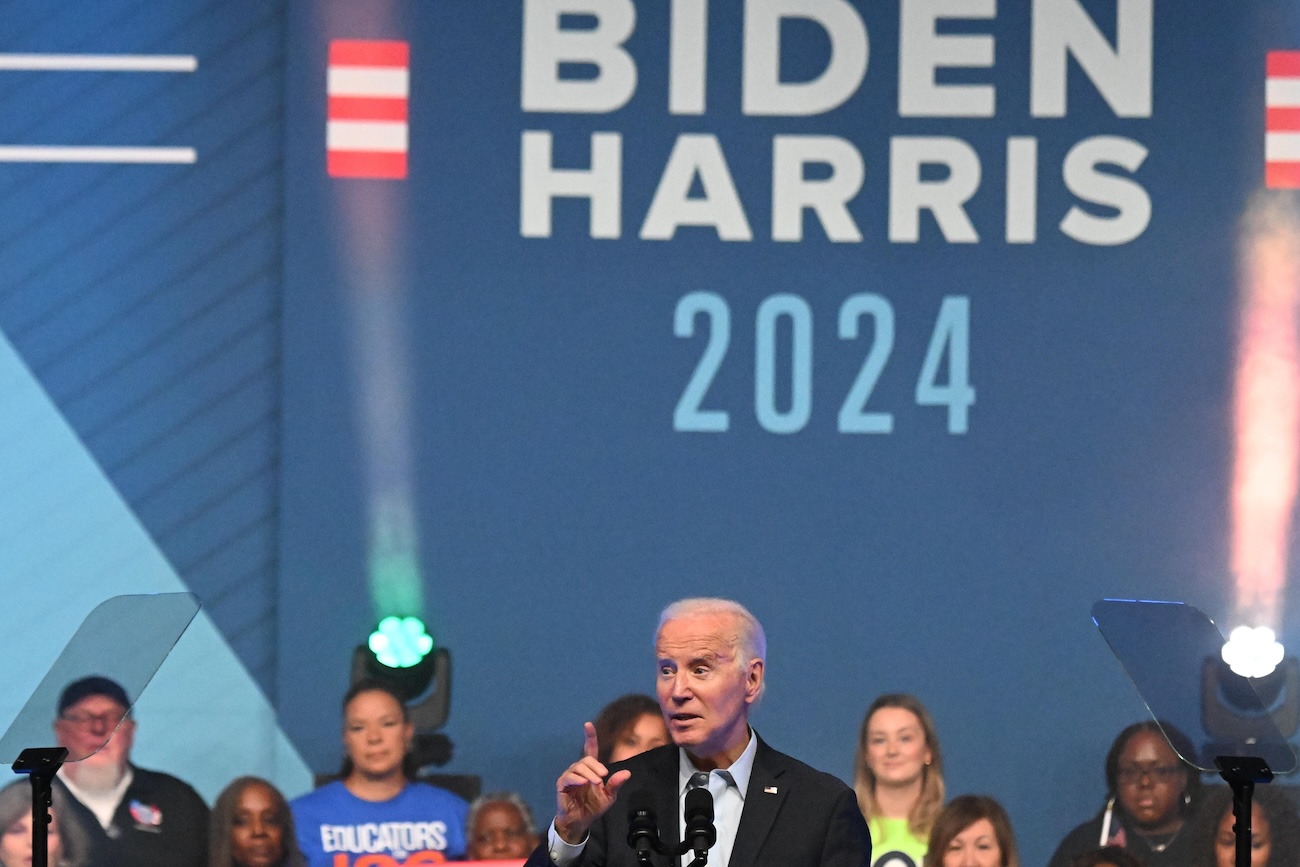
President Biden departing the Oval Office for his waiting helicopter to start a trip to Las Vegas for campaign events last week. On July 21, he ended his reelection campaign. Andrew Leyden/NurPhoto via Getty Images
Biden ends his 2024 presidential reelection bid, endorses Kamala Harris
After weeks of pressure from the Democratic party and others, President Joe Biden has decided to stop pursuing a second term and endorsed Vice President Kamala Harris, who said on Sunday that she would "earn and win" the nomination.
Updated at 4:19 pm ET
President Joe Biden, 81, announced Sunday that he would step down as the Democratic nominee for president in the November election following widespread concerns about his age that intensified after a poor debate performance in June.
The presidential nominee for the Democratic party will now be chosen by delegates at its convention to take place in Chicago from Aug. 19 to 22. Vice President Kamala Harris is the expected frontrunner and Biden endorsed Harris on Sunday.
Following the endorsement, the vice president said in a statement that she was "honored to have the President’s endorsement and my intention is to earn and win this nomination."
Restoring the federal workforce
Coming into the White House, Biden promised to restore a federal workforce that he characterized as having been “hollowed out” by his predecessor (and possible successor). And he included “strengthening the federal workforce” as a pillar of his management agenda in 2021.
His administration promulgated a rule to safeguard the civil service from Schedule F, a Trump policy that sought to remove employment protections for federal workers in policy-related positions and make them easier to remove. Trump has said he would reinstitute Schedule F if elected.
In 2021, Biden signed an executive order to improve diversity, inclusion and accessibility across the federal workforce. Specifically, it expanded health coverage for LGBTQ+ federal workers and strengthened protections for disabled employees.
Hiring at certain agencies increased significantly under Biden due to his legislative accomplishments, including the 2022 Honoring our Promise to Address Comprehensive Toxics (PACT) Act, 2021 Infrastructure Investment and Jobs Act and 2022 Inflation Reduction Act.

His administration also overhauled the federal government’s internship program, including by pushing agencies to provide more paid internships, with the goal to improve recruitment of early-career Americans into public service.
The president enacted an average 5.2% pay raise in 2024 for civilian federal workers and military service personnel, which was the largest authorized pay increase for federal workers since the Carter administration.
The American Federation of Government Employees, which is the largest federal employee union, in 2023 had endorsed Biden for reelection.
Biden also established the American Climate Corps for young Americans to perform climate- and environmental-related jobs, issued guidance for how the federal government should use burgeoning artificial intelligence tools and issued an executive order to increase agencies’ use of apprenticeship programs to recruit younger workers.







